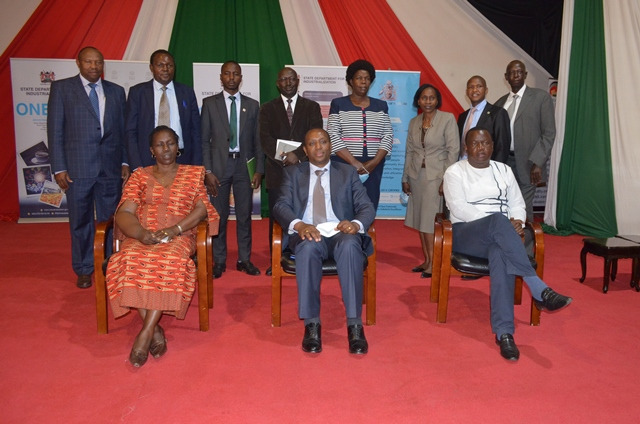The University of Nairobi and the Ministry of Industrialization launched the One village One product (OVOP) initiative in a post-event in marking the International Youth Day 2021 celebrations.

“One Village One Product (OVOP) initiative, a development model initiated in 1979 in the rural Oita Prefecture (County) of Japan by the late Dr. Morihiko Hiramatsu when he served as the Governor of the Prefecture. The model has since been replicated in several other countries in the world with commendable results. Kenya had adopted this model in the past, but due to lack of requisite resources, the programme slowed down. Through the model, each village identifies a valuable local resource then adds value to it through either processing, sales and marketing activities.
The Concept targets to utilize the locally available resources to create jobs and wealth for the local communities across the country.”
The theme for the Friday afternoon celebration was, “Harnessing the Power of SMEs and Cottage Industries in spurring Regional Development”
In his opening remarks, the UoN Vice Chancellor, Prof. Stephen Kiama who was represented by the Associate Vice Chancellor, Research Innovation and Enterprise, Prof. Margaret Hutchinson noted that, “we together with the government and other stakeholders have found it befitting to engage the youth in conversations about the issues affecting them and how they can be part of the solutions because nobody understands the youth better than the youth themselves.
As the saying goes: “If you are not on the table, you are on the Menu”
It is imperative that we put the Youth issues on the table. We must empower the youth with skills to solve problems. We need to nurture their abundant talents and create a conducive environment for Youth innovations and entrepreneurship. Government policies should be geared towards ensuring that the youth have full access to education, healthcare, employment, financial services and that they are able to improve their wellbeing.”
The PS, State of Industrialization, Amb. Peter Kaberia underscored the importance of the triple helix partnership between academia, government and the private sector. He said, “As you may be aware, this Triple Helix of University-Industry-Government relationship is increasingly gaining prominence the world over, as the most effective, efficient and the preferred development model.
Without Academia-Industry-Government working together nothing will do, and with it everything.
Amb. Kaberia highlighted the importance of the one village one product initiative, “The OVOP model aims at achieving regional socio-economic development based on adding value to locally available resources in the country through resource identification, processing, quality control and marketing of the resulting products, “unda unachotumia, na tumia unachounda”
On his part, PS, State Department for Youth Affairs, Mr. Charles Sunkuli emphasized on the movement from the urban industrial areas to the local villages where the youth can tap into locally available resources for manufacture and supply. He said that the government has placed incentives for the youth to participate in these initiatives.
The themes of innovation, Intellectual property and access to these and other government initiatives formed part of the afternoon panel discussions and question and answer session.
- Log in to post comments
